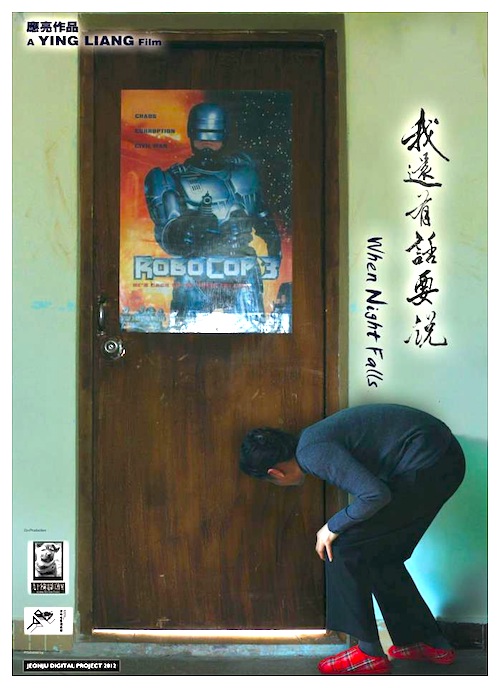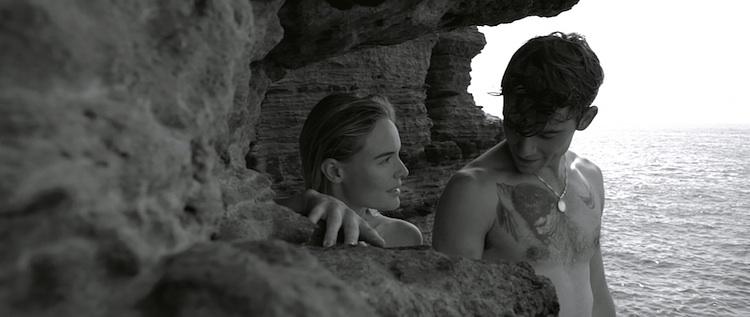By Joe Bendel. Ying Liang is an artist without a country. In large measure, this film is why. After it premiered at the Jeonju International Film Festival earlier this year, word reached Ying that he should not to return to China—or else. A dramatized documentary about the suspicious irregularities surrounding the prosecution (or persecution) of an accused murderer is hardly the project to curry favor with the Chinese Communist Party. Yet, any production from a filmmaker of Ying’s integrity necessarily entails risk in today’s China. As a result, When Night Falls will be even more timely and significant when it screens during the 2012 Toronto International Film Festival.
After suffering a severe beating at the hands of the Shanghai police, Yang Jia allegedly firebombed the police courtyard, stormed the station, and stabbed six active duty officers to death. This sounds like a man they should have recruited for their special forces. Instead, they tried and convicted him in a series of kangaroo courts, while holding his mother Wang Jingmei incommunicado for one hundred forty-three days in a Soviet-style mental hospital. None other than Ai Weiwei filed a missing person report on her behalf. By the time she is finally released, her son’s fate is effectively sealed, but the mother and a well-meaning but unwieldy group of human rights attorneys desperately try to overturn Yang Jia’s death sentence.
 Without question, Night is a forceful indictment of the Chinese justice system, which the government has so cleverly rebutted by harassing Ying’s parents and threatening him with arrest. At each step of the case, Ying makes it clear the police and prosecutors disregarded their own rules to suit their purposes. Several times characters flat-out denounce the state, including the judges passing sentence, as the real criminals in this affair. That is rather bold filmmaking in contemporary China, some might even say foolhardy, but it in no way excuses the Party’s vindictive response.
Without question, Night is a forceful indictment of the Chinese justice system, which the government has so cleverly rebutted by harassing Ying’s parents and threatening him with arrest. At each step of the case, Ying makes it clear the police and prosecutors disregarded their own rules to suit their purposes. Several times characters flat-out denounce the state, including the judges passing sentence, as the real criminals in this affair. That is rather bold filmmaking in contemporary China, some might even say foolhardy, but it in no way excuses the Party’s vindictive response.
Ying is a very good filmmaker, but he is also a demanding one. He definitely shares some of the aesthetic sensibilities of Jia Zhangke and the so-called Digital Generation of independent filmmakers. Severely restrained, Night is like an anti-melodrama, despite the gross injustice and tragedy unfolding around Wang Jingmei. Yet, there is no mistaking her terrible anguish thanks to Nai An’s remarkable performance. Viewers can feel in their bones how broken this woman is, as she struggles to find a way to keep fighting for her son.
Ying notably incorporates still photos (some courtesy of the real Wang Jingmei) to establish the facts of the case with economy and quiet authority. Nonetheless, though Night clocks in at a manageable seventy minutes, it is not a film for the easily distracted. Thoughtfully put together and honest in every way, When Night Falls is highly recommended for those who can handle its uncompromising style and a depressing shot of the truth when it screens this Thursday (9/13) and Friday (9/14) as a Wavelengths selection at this year’s TIFF.
LFM GRADE: A-
Posted on September 12th, 2012 at 11:25am.



